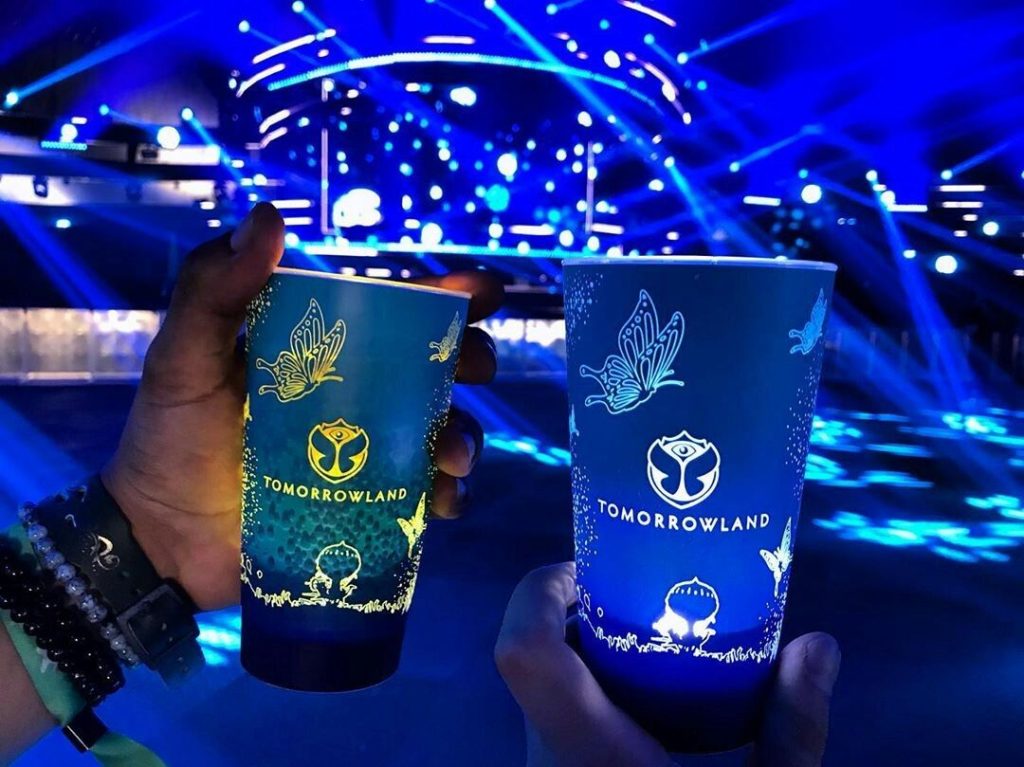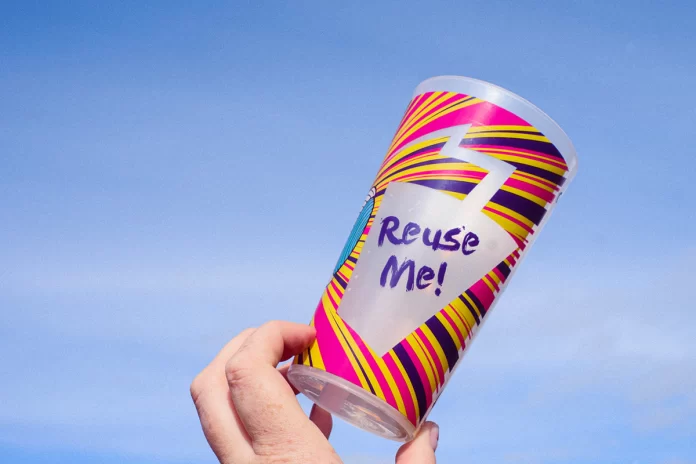Among the many problems that festivals face in their implementation is reducing their environmental footprint. It is well known that these events generate the most waste and garbage, which is why they are implementing restrictive measures. Since June 15, the ban on the use of single-use cups at festivals has been implemented in Europe, but until today its application is uncertain.
Recreational spaces and music festivals, increasingly concerned about the impact they have on the planet, have adopted various measures, one of which is the use of reusable materials for kitchen utensils. Reusable cups are becoming increasingly popular at festivals as a way to reduce waste. They can be made from a variety of materials, including plastic, stainless steel, and bamboo. Some festivals have their own reusable cup designs, while others allow people to bring their own cups.
There are a few different ways that reusable cups can be used at festivals. One way is to have a deposit system where people pay a small fee for a cup and then get their money back when they return it. Another way is to have a “buy one, get one free” system, where people get a free drink when they bring their own cups. What’s the problem here? It is only used in a part of all the consumables in these parties, something that apparently Europe plans to change.
European Festivals And Reusable Cups, Agreements and Exceptions

“Events must be completely switched over by 2025. Organizers have until 2024 to introduce reusable cups and until 2025 to replace PET bottles and cans. They must then demonstrate that at least 95 percent is collected for recycling”
Jan Verheyen of waste company OVAM
With this restriction, drinks at events may only be served in reusable cups. Still, festivals such as Tomorrowland, Rock Werchter, and Graspop have nevertheless requested an exception from Minister of the Environment Zuhal Demir (N-VA). “Some festivals have applied for an exception, and we are now going to see if they have a good reason for this,” says Andy Pieters, spokesperson for Minister Demir.
“We again have a whole year to redraw the plans, and we can look for the right suppliers. This year, we prefer to clear our stock first. Tomorrowland is one of those festivals that has an excessive stock of disposable cups. It would be a shame to send it to the incinerator. At the campsite “Dreamville” we switch completely to reusable. Both for the cups and for the crockery.”
Tomorrowland spokesperson Debbie Wilmsen
Logistic Problems For Festivals

With the opinion of Tomorrowland spokeswoman, we can get to one of the main problems why festivals cannot guarantee the full use of reusable materials, a good reason to require an exception. The festivals that apply can get approval if they demonstrate that they cannot supply enough reusable cups. It may also be that there are not enough washing facilities, so the hygiene of the cups cannot be guaranteed.
It is also logistically difficult to integrate reusable cups. For example, they have not yet found a supplier who can supply a large quantity of cups. Many festivals use about a million pints a weekend, and that’s just for beer. Adding to this, if cups are not washed properly, they could become contaminated with bacteria. This could pose a health risk to festival-goers, and big organizers can’t guarantee a clear washing system.
In the meantime, Federal Minister of Climate, Environment, and Sustainable Development Zakia Khattabi (Ecolo) has also joined the discussion. She points out that the federal government has banned the marketing of disposable cups. Regions can only allow exceptions for disposable cups that were already in stock before January 24, 2023, Khattabi said. All the festivals that get exceptions must provide a system that guarantees that at least 95 percent is collected separately for recycling.
Source: Vrt News




